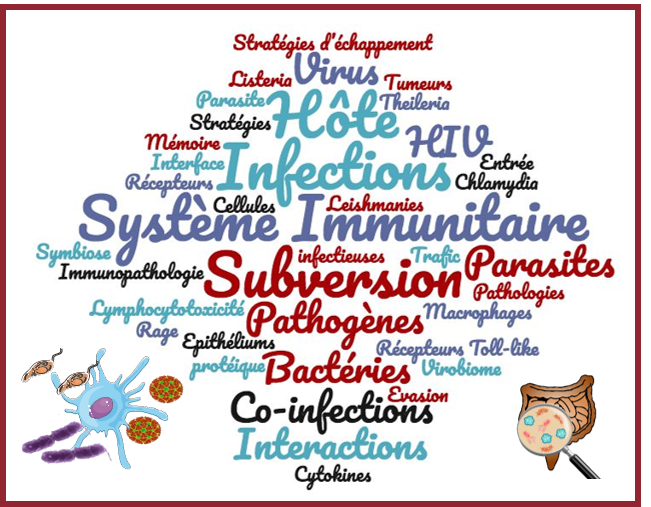Objectives
This course uses an original and reversible approach to the relationship between the host and its pathogens. In particular, we will use the knowledge of infectious mechanisms and their subversion or escape strategies to understand the molecular, cellular and tissue activation pathways of our organism’s response to stress. This teaching at the interface between the fields of infectious diseases and immunology should favour a perspective of the complementarity of the knowledge of infectious cycles and the physiopathology of the organism. The crossed dialogues between bacteria, viruses, parasites, tumors and their host also make it possible to illustrate the contribution of knowledge in research in complementary fields.

Lectures 38h
- Epithelia at the host-pathogen interface
- Intestinal symbiosis and the immune system
- Subversion of protein trafficking by the host and pathogens
- Lymphocytotoxicity and subversion
- Cytokines and subversion
- Entry of pathogenic bacteria into cells
- Toll-like receptors and their subversion by bacteria
- Listeria infections
Chlamydia infections - Escape and subversion of the immune system by parasites
- Insights into how Theileria parasites transform their host cells
- Host – leishmanial interactions: the parasite’s point of view
- Co-infections and macrophages
- Rabies virus infections
- HIV infection: coinfections
- HIV infection: Immunopathology and escape strategies
- Virobiome
- Interactions between tumors and the immune system
- Infectious diseases and immune memory
Practical works 10h
- 1 session and a symposium of 2 hours TD with the whole class
- 3 sessions for each group for the analysis of articles IN ENGLISH
Targeted Skills
- Use an ambivalent approach to knowledge of the interactions of organisms and their environment
- Develop a critical analysis of published knowledge in the field
- Read, analyze, and present and illustrate international publications in English

